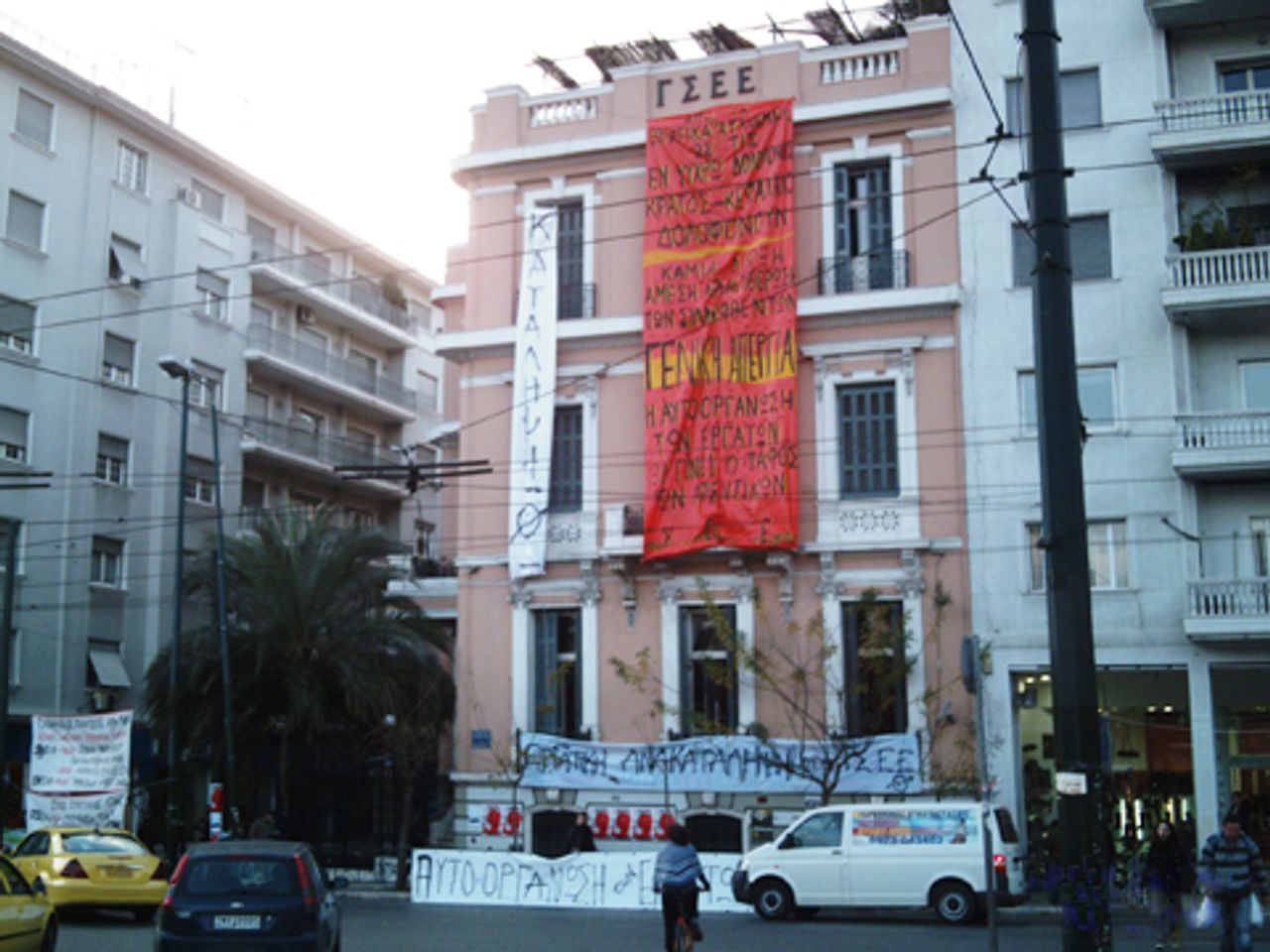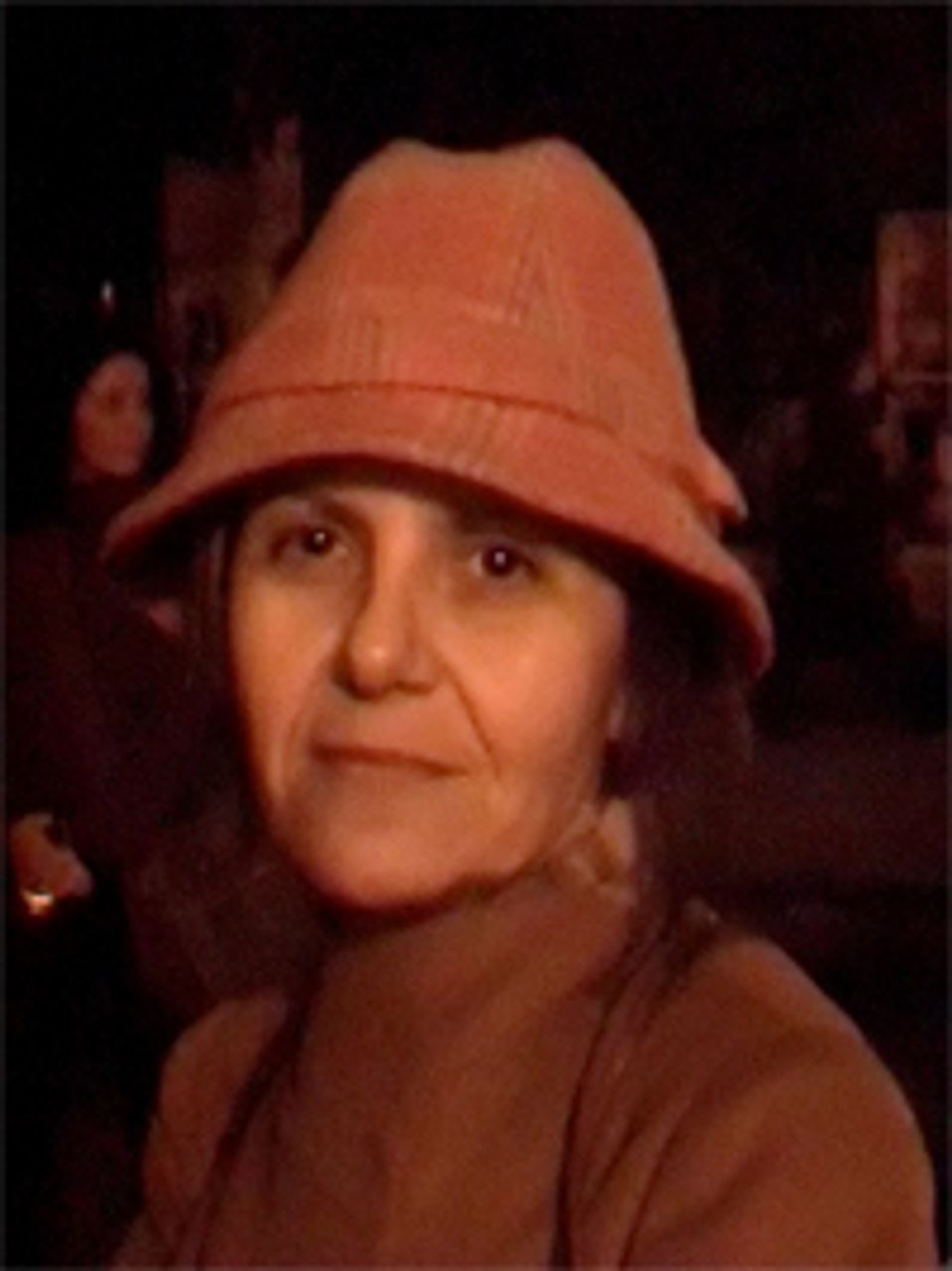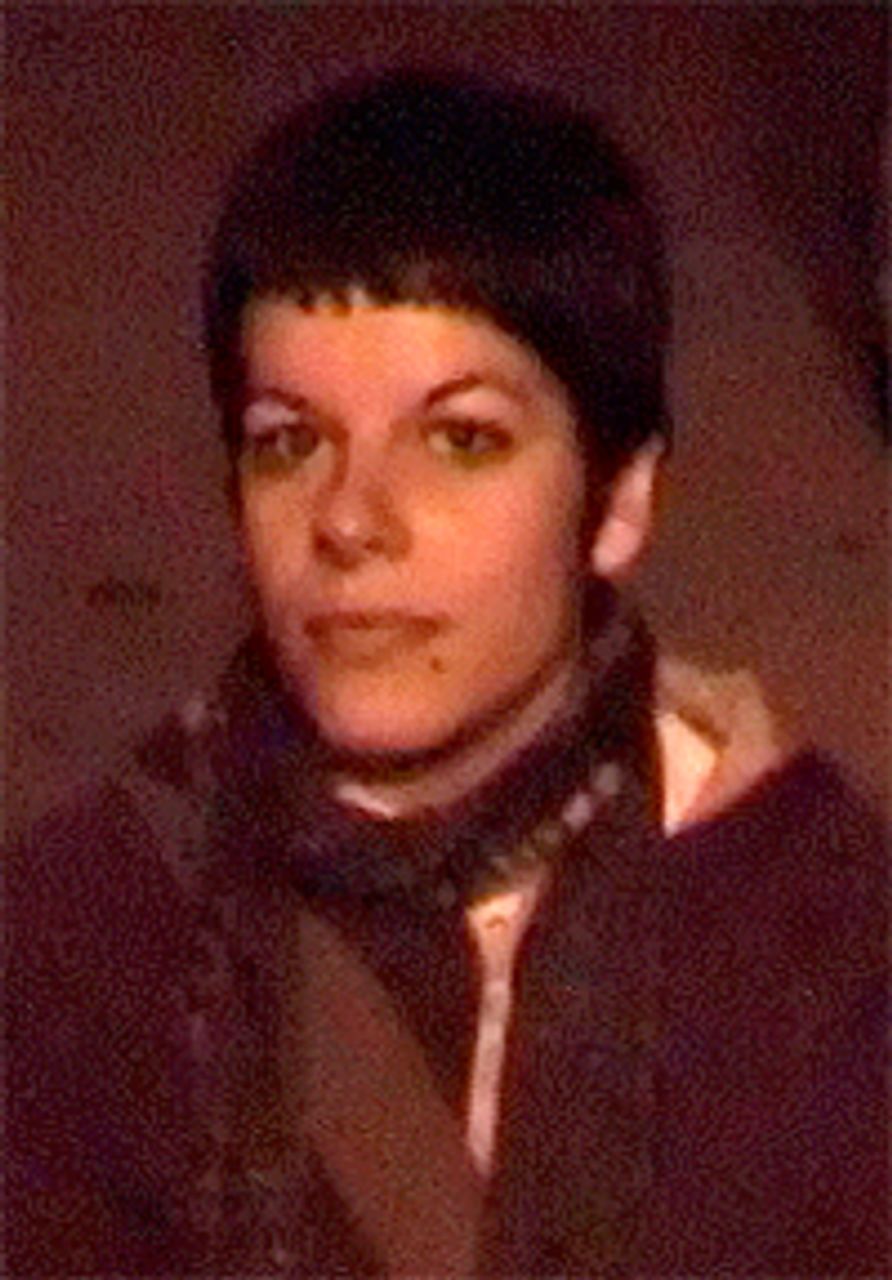Workers and youth have occupied the headquarters of the General Confederation of Greek Workers (GSEE) in Athens since last Wednesday. The occupation is directed against the trade union leadership, which maintains close contact with the government and is trying to prevent the current protest movement from spreading to the factories.
 Occupied headquarters of the General Confederation of Greek Workers (GSEE)
Occupied headquarters of the General Confederation of Greek Workers (GSEE)
On Saturday, WSWS reporters spoke to some of the workers in the occupied building. One 40-year-old building worker declared that the movement that had now developed was much more than just a youth protest. “It is a movement that is profoundly anti-capitalist,” he said. Opposition to the capitalist system extends into the factories, he said, but the trade unions are doing all they can to prevent a mobilisation of workers alongside the protesting youth.
He criticised the trade unions as a bureaucratic elite that no longer has any connection to ordinary workers. He was particularly angry about the role played by the social democratic party PASOK and the Communist Party (KKE), which both have considerable influence in the trade unions. On many issues, this worker confirmed, “They are to the right of the conservative parties.”
Nikolaus, who works in a copy shop, said, “The trade unions have done nothing to support the protests. That is why we have occupied this building.” Both of them described the event that had led to the occupation. At the start of the week, and under pressure from the government, the trade union leadership had cancelled a major demonstration that had been planned and announced long in advance. The union leadership organised a meeting instead. When many workers then assembled spontaneously for the demonstration, trade union stewards stopped them within a few metres and broke up the demonstration.
In the course of the occupation of the trade union headquarters a number of banners were hung from the windows of the building. One banner read: “From workplace accidents to cold blooded murder—the state and big business are murderers. No prosecutions, the immediate release of prisoners. General strike—the independent organisation of workers will be the bosses’ grave.”
Two weeks after the killing of a 15-year-old student in Athens, mass protests are continuing across Greece. There have been demonstrations and battles with police in the Greek capital and many other large cities on nearly a daily basis.
On Saturday, more than a thousand people gathered to pay tribute at the place where Alexis Grigoropoulos was killed by a bullet from a police gun. The majority of those taking part were students and school pupils who expressed their sadness and anger about his death.
Afterward, there were violent clashes between demonstrators and police at the nearby technical university. About 150 demonstrators attacked the police with Molotov cocktails and set fire to police cars. The police responded by using teargas against the demonstrators. In the course of the fighting two firebombs were thrown at government buildings, causing considerable damage.
In the course of interviews gathered by the WSWS it became clear that behind the protests lies widespread discontent with intolerable social and political conditions.
 Anna
Anna
Anna, 48, comes every morning and evening to the place where Alexis was shot. “This young boy is a victim of a decrepit education system and the social problems in our country,” she said. “There has to be a change to our education system.”
Two students, Katharina, 22, and Leandros, 24, said that in their opinion the conflicts of the recent weeks had their roots in catastrophic social conditions. “We are both students and must both survive on around 500 euros per month. If it were not for the support of our parents we would not be able to study at all, and would have to find a poorly paid job,” Katharina complained. “We are opposed to the violence,” Leandros added, “But on the other hand, students are not listened to.”
Around a quarter of the under 20-year-olds in Greece are unemployed and live below the poverty level. For university students, the rate of unemployment is 28 percent. Having studied for many years many must try to keep their heads above water by taking poorly paid work as taxi drivers or working at a petrol station.
Claire and Daphne, two 18-year-old Greek students who are currently studying in England, criticised the government for being largely responsible for the current problems: “Something has to change. Young people are unable to find work.” Both complained of the omnipresent corruption at the highest levels of government: “The people must pay for the errors of the elite. We want the government to take responsibility, but instead they just send the police against us.”
Once again, there were instances of police brutality in the course of the protests. The two young women described how an 18-year-old girl was brutally beaten by the police on the fringe of demonstration. Maria, 23, had been sprayed in the face with teargas by the police. She described her social situation: “I have worked seven days a week and received just 1,000 euros. I still live with my parents because I cannot afford to move out.”
 Maria
Maria
The popular rejection of the ruling New Democracy (ND) government led by Prime Minister Kostas Karamanlis is reflected in the latest opinion polls. For the first time, PASOK leader George Papandreou is ahead of Karamanlis in the polls. PASOK has the most support, followed by the ND, which has clearly lost support. The coalition of the radical left SYRIZA has increased its support to 12 percent and overtaken the Communist Party as the third most popular organisation. The extreme-right LAOS registered 4 percent. Altogether, so-called leftist parties have a clear majority.
While the protests have considerable support among youth and working people, none of these parties is able to satisfy their demands. PASOK has led the Greek government for most of past 20 years and is largely responsible for the current levels of social decline. It is seeking to replace the government and once again lever its members into key political and economic posts. It has no intention of undertaking any fundamental political changes. The party has sharply condemned the protests of the past weeks, which leading party members declare damage Greece’s image abroad.
SYRIZA is a coalition of diverse leftist tendencies that has declared some support for the protests, while at the same time trying to isolate and divert them into a harmless direction as far as the political elite is concerned. The coalition’s call for new elections is above all based on the hope that they could be included in a government coalition led by PASOK.
The KKE has openly condemned the protests. Leading KKE members have declared that the protests are organised by “desperados” and “fanatically violent elements,” whose only aim is destruction. The KKE has deliberately organised its own demonstrations and is attempting to suppress the movement as quickly as possible. It is the only opposition party to publicly oppose new elections.
The protests and riots of the past few weeks are an attempt by many youth to find a solution to their problems. They show that workers and young people are no longer willing to accept the worsening social, working and education conditions created by the capitalist system.
A number of radical groups are attempting to fill the political vacuum. Behind their radical phrases most of these organisations conceal an opportunist policy aimed at driving the movement of young people into the grip of the trade union bureaucracy and its associated parties. They have boycotted the independent pickets for the murdered youth, as well as the occupation of the GSEE building.
Under these conditions, anarchistic conceptions based on activism have won a certain influence amongst youth. The anarchist elements play the role of isolating the youth from the working class and hold workers responsible for the right-wing policies of the trade union bureaucracy, PASOK and the KKE. The only genuinely progressive orientation lies in turning the current movement towards the working class in Greece, throughout Europe and internationally, based on a socialist program.
